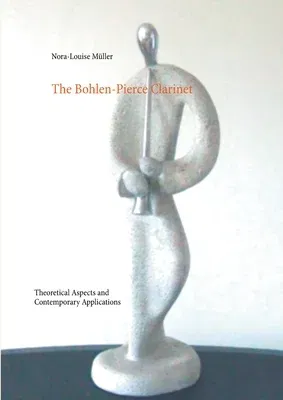Abstract Repertoire in Bohlen-Pierce (BP) tuning has grown significantly
since the debut of BP clarinets in 2008. Literature specifically
dedicated to the BP clarinet, on the other hand, is still rare.
Practice-led research conducted by the author provides useful materials
about the BP soprano and tenor clarinets, such as contemporary playing
techniques or acoustical conditions. The current state of repertoire is
shown; exemplary analyses of compositions featuring one or more BP
clarinets are given. A new BP specific notation is introduced; it has
been developed from a practical point of view and has gained great
acceptance among musicians performing in BP. Beside using BP as the
(only) tuning system in compositions, it is also possible to combine BP
with other scales to achieve effects of extended tonalities or rich
microtonal structures. Multiphonics as a very popular phenomenon in
contemporary woodwind music are highlighted, providing fingering charts
and notational suggestions for both BP soprano and BP tenor clarinets.
The theoretical idea of a BP third-tone scale (39div3) is transferred
into practice by providing fingering charts and practical advice to
performers and composers. I hope that this thesis can give inspiration
and advice to those motivated to compose for and perform on BP
clarinets, and that BP clarinets will gain the popularity they deserve
in contemporary music performance. The BP clarinet and its growing
repertoire may widen the range of expression of dedicated clarinet
players.


